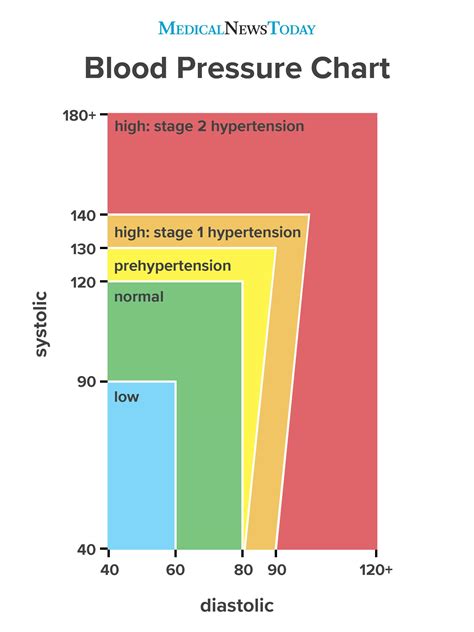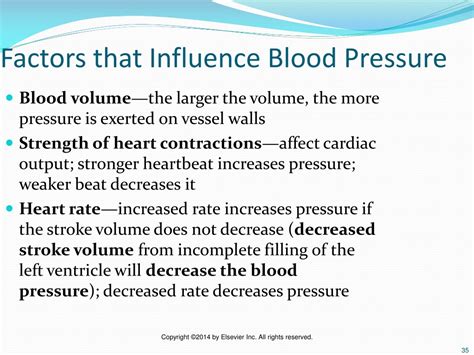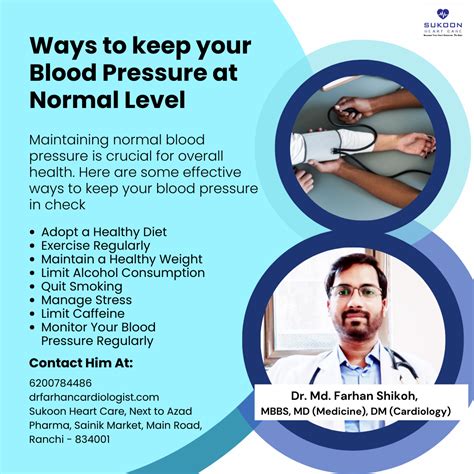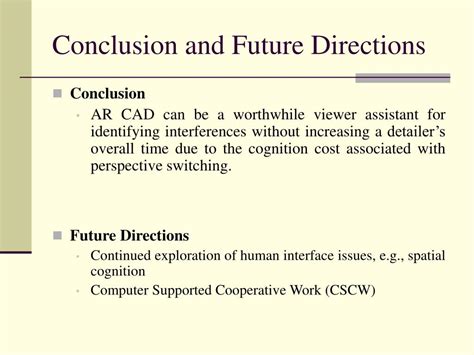Intro
Discover the ideal Normal Blood Pressure Range, including systolic and diastolic readings, to maintain a healthy cardiovascular system and prevent hypertension, hypotension, and related heart diseases.
Maintaining a healthy blood pressure is crucial for overall well-being, as it plays a significant role in ensuring the proper functioning of our organs and bodily systems. Blood pressure is the force exerted by blood against the walls of arteries, and it is measured in millimeters of mercury (mmHg). The normal blood pressure range is a topic of great interest, as it serves as a benchmark for assessing cardiovascular health. In this article, we will delve into the importance of understanding blood pressure, its measurement, and the factors that influence it.
Understanding blood pressure is essential, as it can have a significant impact on our quality of life. High blood pressure, also known as hypertension, can lead to severe health complications, such as heart disease, stroke, and kidney damage. On the other hand, low blood pressure, or hypotension, can cause dizziness, fainting, and fatigue. Therefore, it is vital to be aware of the normal blood pressure range and take steps to maintain it. The American Heart Association (AHA) provides guidelines for blood pressure categories, which will be discussed in detail later in this article.
The measurement of blood pressure is a straightforward process that involves using a sphygmomanometer, a device that consists of a cuff, a bulb, and a gauge. The cuff is wrapped around the upper arm, and the bulb is squeezed to inflate the cuff, which temporarily stops blood flow. As the cuff deflates, the gauge measures the pressure at which blood flow resumes, providing the systolic and diastolic readings. These readings are essential in determining the blood pressure category, which can be normal, elevated, stage 1 hypertension, or stage 2 hypertension.
Understanding Blood Pressure Categories

Factors that Influence Blood Pressure

Lifestyle Modifications for Blood Pressure Management
Lifestyle modifications are essential for managing blood pressure and reducing the risk of cardiovascular disease. The following are some effective ways to lower blood pressure: * Engage in regular physical activity, such as walking, jogging, or swimming * Follow a balanced diet that is low in sodium, sugar, and saturated fats * Maintain a healthy weight through a combination of diet and exercise * Practice stress-reducing techniques, such as meditation or deep breathing * Get adequate sleep, aiming for 7-8 hours per night * Limit alcohol consumption and avoid smokingMonitoring and Managing Blood Pressure

Complications of Uncontrolled Hypertension
Uncontrolled hypertension can lead to severe health complications, including: * Heart disease: High blood pressure can cause the heart to work harder, leading to heart failure, coronary artery disease, and cardiac arrhythmias. * Stroke: High blood pressure can cause blood vessels in the brain to rupture, leading to stroke and potential brain damage. * Kidney disease: High blood pressure can damage the kidneys, leading to chronic kidney disease and potentially requiring dialysis or transplantation. * Vision loss: High blood pressure can cause blood vessels in the eyes to burst, leading to vision loss and potentially blindness.Strategies for Maintaining a Healthy Blood Pressure

Blood Pressure and Mental Health
There is a significant link between blood pressure and mental health, as high blood pressure can increase the risk of anxiety, depression, and cognitive decline. The following are some ways to manage stress and maintain mental well-being: * Engage in regular physical activity, which can help reduce stress and anxiety * Practice stress-reducing techniques, such as deep breathing or meditation * Connect with friends and family, which can help reduce feelings of loneliness and isolation * Get enough sleep, aiming for 7-8 hours per night * Limit alcohol consumption and avoid smokingConclusion and Future Directions

Final Thoughts and Recommendations

We invite you to share your thoughts and experiences on maintaining a healthy blood pressure. What strategies have you found to be most effective in managing your blood pressure? What challenges have you faced, and how have you overcome them? By sharing your stories and insights, we can work together to promote cardiovascular health and well-being.
What is the normal blood pressure range?
+The normal blood pressure range is typically defined as a systolic reading of less than 120 mmHg and a diastolic reading of less than 80 mmHg.
What are the risks of uncontrolled hypertension?
+Uncontrolled hypertension can lead to severe health complications, including heart disease, stroke, kidney disease, and vision loss.
How can I lower my blood pressure?
+Lifestyle modifications, such as regular physical activity, a balanced diet, stress-reducing techniques, and adequate sleep, can help lower blood pressure. In some cases, medication may also be necessary.
How often should I get my blood pressure checked?
+The American Heart Association recommends that adults have their blood pressure checked at least once a year, or more frequently if they have a history of hypertension or other cardiovascular risk factors.
What are the benefits of maintaining a healthy blood pressure?
+Maintaining a healthy blood pressure can reduce the risk of cardiovascular disease, improve overall health and well-being, and increase life expectancy.
